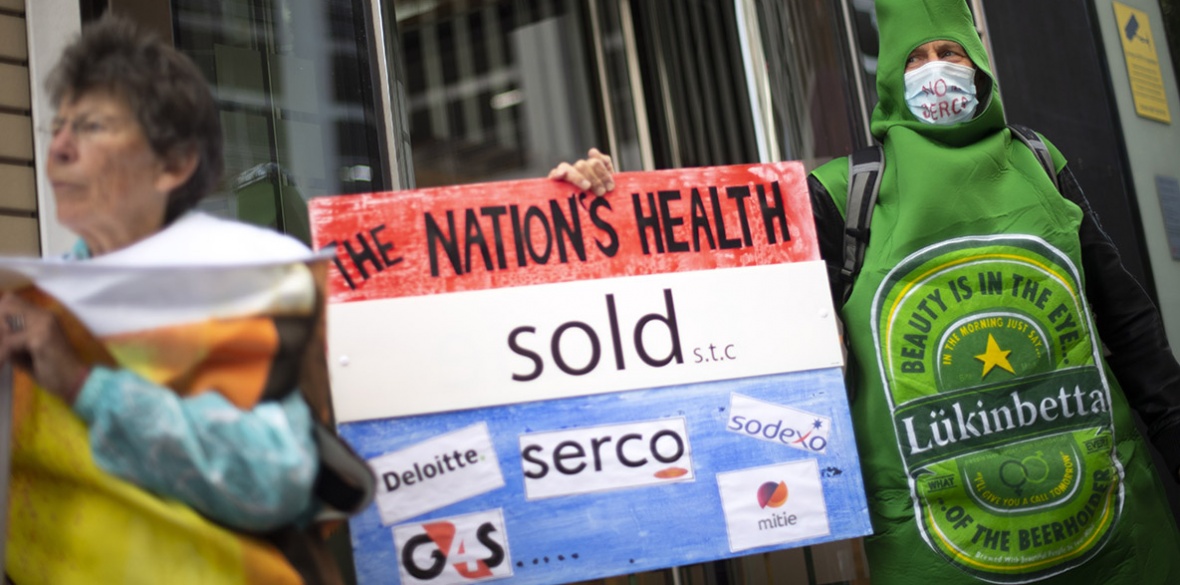AS THE British government prepares to announce its latest pandemic containment measures, the mood among communities is increasingly one of revolt.
Partly this is because of Boris Johnson’s high-handed lack of consultation with devolved layers of government, which will have to co-ordinate with or implement central directives and handle their impact at community level.
Manchester City Council leader Sir Richard Leese speaks for many when he hints that patience with Labour’s broad support for the government’s measures is running out. “At some point the Labour Party in Parliament has to say, ‘Enough is enough, we can’t support this’,” he notes.
Whether we are on the brink of a second nationwide lockdown or merely continuing the current whack-a-mole approach of slapping short-term restrictions on area after area, the devastation caused by coronavirus is likely to spread, both in terms of lives needlessly lost — lots of countries, from China and Vietnam to New Zealand and Germany, have done a far, far better job of protecting their peoples — and in the loss of jobs and livelihoods.
New lockdowns will be less readily observed than the one imposed in spring.
The phrase “lockdown fatigue” implies that people are simply bored; it ignores the serious health effects of prolonged isolation as well as the dilemma faced by people who want to follow the rules but who could wind up facing hunger or homelessness because there is no adequate support for them to do so.
The cumulative effect of lost income is becoming catastrophic for millions. The jobs massacre warned of by trade unions is not a forecast. It is happening right now.
Lockdown resentment has been fed by the hypocrisy of government, most dramatically in the case of Dominic Cummings’s now infamous road trip.
But most damagingly of all, almost nobody any longer believes that the strategy is working.
As the government seesaws between locking down and opening up, an unproductive culture-war-style divide deepens.
One side denies the need for social distancing or restrictions, depicting the virus as a conspiracy to remove our rights to freedom of association (which are, in fact, being restricted in ominous ways). The other pushes for longer, stricter lockdowns, arguing that lives are more important than the economy.
Yet even at the height of the first lockdown, millions continued going into work — they had to, to keep the country running. Not everyone can stay at home. And as public-health experts like Professor Devi Sridhar point out, a lockdown is a way of buying time, not of suppressing the virus.
Countries that have successfully lifted lockdowns, like China, didn’t stay under lockdown longer. They built an effective test-and-trace system that allowed them to lift general restrictions while continuing to suppress infection rates.
Britain has completely failed to build anything of the kind. The reason is that the government has handed immense sums of public money to bungling private corporations such as Serco and Deloitte rather than develop an in-house service operated by the NHS and local authorities. The result is chaos for the health system, exposure to lethal risk for the public and huge financial rewards for a handful of well-connected spivs.
The battle cry of the left must be for an end to the privatised delivery of these vital services. Privateers are patently incapable of getting a handle on the virus. And this pandemic year has made the case for kicking the private sector out of all our public services stronger than ever.
These questions of ownership and control are crucial to understanding and addressing Britain’s disastrous response to coronavirus. A year ago we had a Labour Party that would have shouted that from the rooftops. Now we have to campaign for this understanding where we can — through Labour, through our unions, through our councils, through socially distanced public protest.
With or without the official opposition’s help, the government must be made to change its approach.











